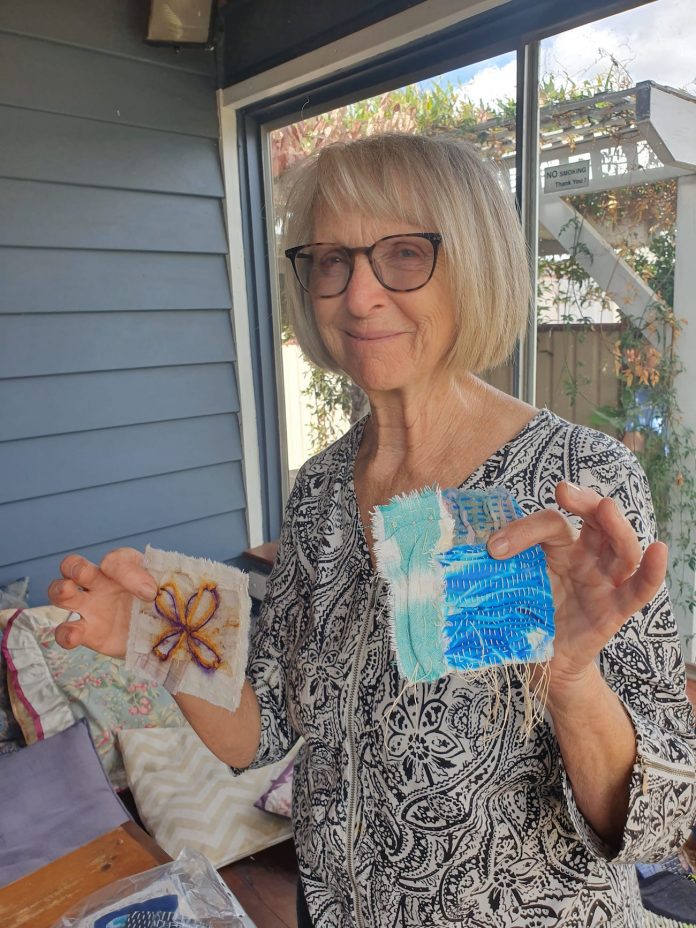“It’s 2.30am and I’m in a convoy of cars heading east from Margaret River to the Helms Forest. The long train of headlights in the darkness is a spectacular sight. The driver of my car is 80 years old and a great grandmother.”
That was the opening to my column in November 2020, and the beginning of my experiences with the Nannas for Native Forests.
Many readers will have followed the Nannas’ journey since they stepped up as elders of the community leading a charge for the protection of our native forests.
The Margaret River Nannas led the way with direct action in forest coups under logging, a community rally and a bus tour into the magnificent south west forest. In November 2020, hundreds of people rallied outside State Parliament calling on the government to stop the logging of all native forests. The Nannas were there in force, singing their original Nannas Anthem. The campaign gained momentum with strong media coverage and a tour of the inspirational film The Cry of the Forest produced by Jane Hammond.
The Nannas gathered in small groups in towns across the south west. In Denmark, Bunbury, Perth, Safety Bay, Margaret River, Bridgetown, Rockingham and more. They met to stitch leaf badges and talk to the public about the plight of our beautiful, but endangered, forests. The tiny embroidered leaves were given away with a message: ‘We hope that stitch by stitch, leaf by leaf and conversation by conversation we can raise awareness and support the WA Forest Alliance in its efforts to enable our forests to continue to exist for our children and grandchildren.’
The result they hoped for came in September 2021 when the WA State Government announced that native forest logging in WA would end at the start of 2024.
Premier Mark McGowan said the State’s next forest management plan – covering the period 2024–2033 – would not include native forest clearing, and the government was spending $350 million to expand softwood timber plantations and $50 million to support affected workers and communities. The historic decision meant that WA would be the first Australian state to end native forest logging, ahead of Victoria’s promised phase-out in 2030.
While the Nannas celebrated they also recognised that this announcement wasn’t the end of the journey. With two years to go until the adoption of the new Forest Management Plan, they turned their attention to submissions during the public comment period and to drawing attention to other threats to our forests including road construction in the Gelorup Corridor, bauxite mining and fire.
In a beautiful celebration of their craftivism, the Margaret River Heart currently features an exhibition of large leaves crafted and embroidered from felt, paper and upcycled fabric by Nannas from around the State.
Now the Margaret River Nannas have found a new direction. With ‘Nanna-in-Chief’ Peta Goodwin standing down to pursue other environmental interests, leaf-stitching coordinator Pam Gunnell and her group came up with a new idea.
They are alarmed by statistics on the waste associated with the fast fashion industry.
Pam explained:
“Every year, Australians acquire on average 27kg of new clothing per person, chucking out a whopping 23kg. Maybe you send most of your throw-outs to op-shops, but in the end 90 per cent of the clothes, cushion covers, sheets, blankets, towels and other textiles we discard – about 800,000 tonnes per year – ends up in landfill. This is multiplied on a huge scale the world over. And not all countries have such efficient services as we in Australia do. In many places discarded textiles pile up on beaches, on river banks and by the side of roads.’
The newly-badged ‘Nannas on the Mend’ are promoting slow fashion. They have begun to hand stitch wearable patches, coasters and kitchen mats from scraps of recycled fabric to help raise awareness of this huge issue. They give them away with information to spread the word to family and friends. By buying clothes to last, buying second hand, repairing and even repurposing clothing, we can all help to cut down on unnecessary consumption, use fewer resources and reduce waste and pollution.
Slow fashion is kind to our budget and the planet.
Go Nannas!
































